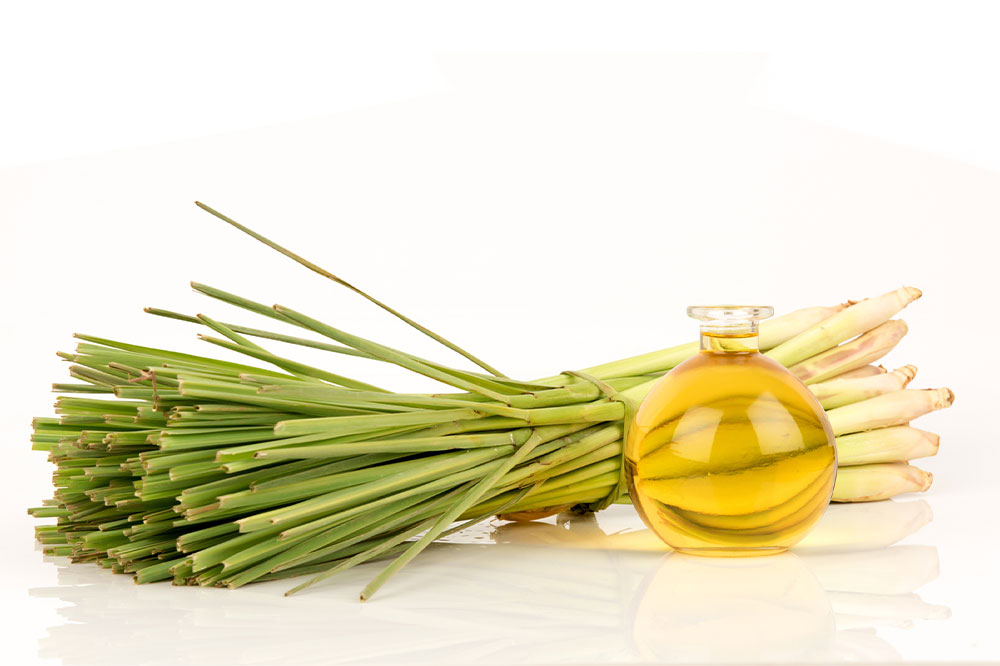Effective Natural Mosquito Repellent Scents You Need to Know
Discover the top five natural scents that effectively repel mosquitoes. From citronella and lavender to lemon eucalyptus and cinnamon, learn how these aromas can protect you safely and eco-friendly. This comprehensive guide helps you create a mosquito-free environment using natural methods, perfect for outdoor enthusiasts looking for alternatives to chemical repellents. Protect your family and enjoy outdoor activities without worry with these proven natural remedies.

Effective Natural Mosquito Repellent Scents You Need to Know
Mosquitoes pose a significant health risk worldwide due to their ability to transmit diseases like malaria, dengue, Zika virus, and chikungunya. These tiny insects are highly sensitive to smell; they are naturally attracted to floral scents, perfumes, perspiration, and the carbon dioxide exhaled by humans and animals. Despite their attraction to certain odors, there are specific natural scents that repel mosquitoes effectively, providing a safer, chemical-free way to protect yourself outdoors and indoors. Understanding these scents and how to utilize them can significantly reduce mosquito bites and lower the risk of mosquito-borne illnesses, especially in areas with stagnant water or dense vegetation where mosquitoes breed.
In this comprehensive guide, we will explore the top five natural scents with proven mosquito-repellent properties. We will discuss how each scent works, how to incorporate them into your routine, and why they serve as effective alternatives to chemical repellents. By understanding these natural remedies, you can create a safer environment for your family, enjoy outdoor activities without worry, and contribute to eco-friendly pest control.
Why Are Some Scents Unattractive to Mosquitoes?
Research indicates that mosquitoes are particularly responsive to certain volatile compounds present in plant oils and aromas. These scents interfere with the mosquitoes' sensory mechanisms, making it difficult for them to locate hosts. Unlike human scents that they find irresistible, these natural repellents produce odors that mask or overpower the attractants, effectively deterring mosquitoes from approaching.
Moreover, many of these natural scents are also associated with pleasant smells for humans, making them a desirable choice over chemical repellents containing DEET or other synthetic ingredients. They are safe, eco-friendly, and can be easily integrated into daily life through home remedies, gardening, or personal care products. Let’s explore the leading natural scents that serve as powerful mosquito repellents.
1. Citronella: The Classic Natural Mosquito Repellent
Derived from lemongrass, citronella has long been recognized as a natural mosquito repellent. The oil extracted from lemongrass contains compounds like citronellal, citronellol, and geraniol, which create an aroma that mosquitoes find highly unpleasant. This scent masks the carbon dioxide and body odors that typically attract these pests, creating a protective barrier around humans and outdoor spaces.
Citronella is commonly used in candles, oils, sprays, and lotions designed to repel mosquitoes. Burning citronella candles outdoors is an effective way to reduce mosquito presence at picnics, barbecues, or garden parties. Additionally, planting citronella grass or lemongrass shrubs around your yard can establish a natural barrier against mosquitoes, offering ongoing protection throughout the mosquito season.
For a DIY approach, dilute citronella oil with carrier oils like coconut or almond oil and apply it to your skin or clothing. Be mindful to perform a patch test first to prevent allergic reactions. The pleasant citrus scent of citronella also makes it a favorite for outdoor enthusiasts seeking a natural and effective mosquito deterrent.
2. Lavender: A Fragrant Solution to Mosquitoes
Aromatic and soothing, lavender is not only popular for its calming fragrance but also for its mosquito-repelling qualities. The essential oil derived from lavender contains linalool and linalyl acetate, compounds known to interfere with mosquito olfactory receptors. When used correctly, lavender can be an excellent natural repellent, suitable for both skin application and outdoor spaces.
Applying lavender essential oil topically, diluted with a carrier oil, can provide a pleasant aroma while keeping mosquitoes at bay. Alternatively, growing lavender plants in your garden not only enhances outdoor aesthetics but also acts as a natural bug repellent. The plant's aromatic flowers attract pollinators but repel biting insects, making it a win-win for gardeners and outdoor enthusiasts.
Lavender sprays can be made by mixing a few drops of essential oil with water and a small amount of alcohol or vodka to help disperse the scent. Reapply frequently, especially after swimming or sweating, to maintain effectiveness. Incorporating lavender into your outdoor living areas can help create a mosquito-free environment, allowing you to enjoy nature peacefully.
3. Rosemary: More Than a Culinary Herb
Rosemary, well-known as a culinary herb, also possesses mosquito-repellent properties. Its aromatic leaves contain cineole and camphor, compounds that mosquitoes find unappealing. When used as a scent or oil, rosemary can provide a natural barrier against pests, especially during outdoor activities such as grilling or camping.
To utilize rosemary as a repellent, you can crush fresh sprigs and rub the leaves on your skin or clothing, especially when spending extended periods outdoors. Alternatively, rosemary essential oil can be diluted and used in sprays, diffusers, or applied to the skin to discourage mosquitoes.
Growing rosemary plants around your patio or garden can serve as a passive repellent, releasing its scent into the air and deterring mosquitoes around your living area. Additionally, burning dried rosemary sprigs or using rosemary-scented candles can help protect outdoor spaces during mosquito season.
4. Lemon Eucalyptus: An EPA-Recommended Natural Repellent
Lemon eucalyptus oil stands out among natural repellents for its proven effectiveness and recommendation by health authorities like the CDC and EPA. It contains para-menthane-3,8-diol (PMD), a compound responsible for its mosquito-repelling capabilities. When properly diluted and applied, lemon eucalyptus oil can provide comparable protection to low concentrations of DEET.
To create a homemade lemon eucalyptus repellent, dilute the oil with a carrier oil such as witch hazel, coconut oil, or spray base. Spray it generously on exposed skin and clothing before heading outdoors. It’s important to reapply every few hours, especially after swimming or sweating, to maintain its protective effect.
Lemon eucalyptus’s fresh, citrusy scent not only keeps mosquitoes away but also offers a pleasant aromatic experience. It’s an excellent natural option for those seeking an eco-friendly, effective repellent without harsh chemicals.
5. Cinnamon: A Multi-Functional Natural Remedy
Cinnamon oil, derived from the bark and leaves of the cinnamon tree, is another potent natural repellent. The strong aroma of cinnamon acts as a deterrent to mosquitoes, and some studies suggest that cinnamon oil can even kill mosquito eggs, reducing local populations over time.
To harness cinnamon’s protective properties, mix a small amount of cinnamon oil with water or carrier oils to create a spray suitable for clothing, furniture, and outdoor surfaces. Be cautious not to apply highly concentrated cinnamon oil directly on the skin, as it can cause irritation. Always perform a patch test beforehand.
In addition to its repellent qualities, cinnamon has antimicrobial and anti-inflammatory properties, making it a versatile addition to your natural pest control toolkit. Burning cinnamon-scented candles or using cinnamon extracts in diffusers can contribute to a mosquito-free environment.
Conclusion: Embrace Nature’s Defense Against Mosquitoes
Using natural scents as mosquito repellents offers a safe, effective, and environmentally friendly approach to pest control. Whether through planting fragrant herbs, applying essential oils, or using scented candles and sprays, these methods harness nature’s own defenses to protect your health and outdoor enjoyment. Incorporating citronella, lavender, rosemary, lemon eucalyptus, and cinnamon into your pest management strategy can significantly reduce mosquito bites and the risk of disease transmission.
Always remember to reapply natural repellents as recommended and observe any skin sensitivities. Combining multiple scents or methods can enhance protection and create a more inviting, mosquito-free outdoor space. Embrace these natural solutions for a healthier way to enjoy your outdoor activities and safeguard your loved ones from mosquito-borne illnesses.





